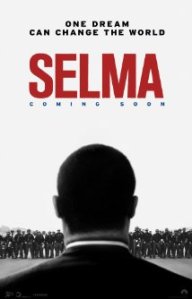26/02/15
I’m generally a bit of a sucker for a time travel movie and the trailer for Project Almanac looked fairly promising, so I decided to catch this one on the big screen. To give it its due, there’s a really intriguing idea at the heart of this and the film starts well, but sadly doesn’t maintain its own high standards throughout. It’s the story of five American teenagers, led by science-whizz David (Jonny Weston) who discovers that his late scientist father was working on something pretty special down in the cellar – a time machine. Not only that, he’s left full instructions on how to finish building it. David is tipped off to the fact that he’s going to be successful at doing that when he watches an old videotape of his own seventh birthday party and spots his eighteen year old self, reflected in a mirror. That’s a lovely idea and frankly the best thing in the film (and perhaps not surprisingly, the trailer.)
The early sequences when the kids put the machine together are nicely done and they somehow manage to convince you that they know what they’re talking about. For the first half hour or so, the film galumphs entertainingly along, barely pausing to draw breath. This being an MTV production, the teenagers desires are straightforward. Should they go back and assassinate Hitler? No, they just to win the lottery, pass their exams, buy flash cars and visit the Lollapalooza music festival! But it’s while they’re there that things begin to get complicated as David announces his love for Jesse (Sofia Black-D’elia) and breaks his own self-appointed rules in order to go back a second time to claim that first all-important kiss. As is often the case in such stories, he unwittingly causes a butterfly effect, the ripples of which create troubling problems that effect the world in general – everything from broken legs to plane crashes – and the more he frantically zips around in time trying to sort things out, the more disasters he causes and the less engaging the film becomes. Director Dean Israelite (seriously) employs the rather over-used ‘found footage shaky-cam’ technique for the early sequences, then throws it out of the window when it becomes unworkable. It doesn’t help that our luckless teens occasionally talk about their favourite time travel films – ‘Hey, have you seen Looper? Great movie!’ – which only serves to emphasise the fact that what we’re being offered here isn’t anything like as assured as that one, or indeed any of the others that are mentioned.
By the final third, the film has collapsed into a shambling series of bewildering events that only serve to illustrate that the film has failed to deliver on its initial promise. A shame but that’s the way the cookie crumbles time wise.
2.8 stars
Philip Caveney








